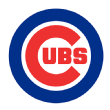I'll be doing a good bit of MLB analysis here at ESPN, so it makes sense as I'm walking in the door to do a status check on the offseason as a whole. Most teams did a reasonable execution of their offseason to-do lists, but a handful of teams stand out to me, either because of an offseason-defining move, a particularly strong execution of their plan, or their level of resources in play this offseason were a clear notch higher or lower than usual.
Here are the teams who won and lost this hot stove season, with a special shoutout to the biggest winner ... and loser:
Offseason winners
 New York Yankees: The Yankees had a bunch of money to spend to upgrade the team, an ace was their biggest glaring need, and they got the best pitcher in baseball in Gerrit Cole. He cost only money -- $324 million of it -- but nothing in the way of young players.
New York Yankees: The Yankees had a bunch of money to spend to upgrade the team, an ace was their biggest glaring need, and they got the best pitcher in baseball in Gerrit Cole. He cost only money -- $324 million of it -- but nothing in the way of young players.
They haven't really done anything else of note, other than losing Didi Gregorius, Edwin Encarnacion and Dellin Betances on one-year deals from role-playing-type performances. James Paxton's injury will hurt in the first half, but there's some young starting pitching depth that can fill in until he returns.
The corner infield would be another vulnerable spot, but Miguel Andujar is looming behind Gio Urshela and Luke Voit if their 2019 magic runs out. But with the addition of Cole, the title of the top team in the American League is now an open competition between the Yankees, Astros and, quietly, this next team:
 Minnesota Twins: Coming into the offseason, Minnesota had four-fifths of its rotation entering free agency, but the Twins have managed to fill those holes effectively.
Minnesota Twins: Coming into the offseason, Minnesota had four-fifths of its rotation entering free agency, but the Twins have managed to fill those holes effectively.
Jake Odorizzi and Michael Pineda were re-signed, while Rich Hill, Homer Bailey and Jhoulys Chacin were signed for a combined $10 million guaranteed and Kenta Maeda was acquired in the Mookie Betts-adjacent deal that mainly cost them a short-term reliever in Brusdar Graterol. Maeda and the three-headed depth piece of Hill, Bailey and Chacin can reasonably approximate Kyle Gibson and Martin Perez from the strong starting rotation of the Twins' 101-win team in 2019.
The biggest loss from the lineup was Jonathan Schoop, and his role as a right-handed power source was handily replaced with Josh Donaldson (for four years and $92 million). Minnesota has stealthily built a smaller-budget variation on the Dodgers' formula of a sustainable contender that doesn't make unforced errors and has a strong farm system.
 Chicago White Sox: Another AL team on the rise is in Chicago. The White Sox's rebuild has moved to the next step where the big league team has been supplemented with free-agent spending. Yasmani Grandal (four years, $73 million), Jose Abreu (three years, $50 million) and Dallas Keuchel (three years, $55 million) got the big multiyear guarantees while Edwin Encarnacion, Steve Cishek and Gio Gonzalez came aboard on one-year deals. And Luis Robert was the latest young player to get a hearty early-career extension (six years, $50 million).
Chicago White Sox: Another AL team on the rise is in Chicago. The White Sox's rebuild has moved to the next step where the big league team has been supplemented with free-agent spending. Yasmani Grandal (four years, $73 million), Jose Abreu (three years, $50 million) and Dallas Keuchel (three years, $55 million) got the big multiyear guarantees while Edwin Encarnacion, Steve Cishek and Gio Gonzalez came aboard on one-year deals. And Luis Robert was the latest young player to get a hearty early-career extension (six years, $50 million).
Back-of-the-envelope projections math has the Sox around .500, just behind Cleveland in a contest for second place in the AL Central, as the Indians' core is getting too expensive to keep together and the White Sox's young core of talent has upward mobility.
And the biggest offseason winner is ...
 Los Angeles Dodgers: Similar to how the Yankees are listed here by addressing their biggest need with a star player and not losing much of consequence, the Dodgers added Mookie Betts. To do that, they shuffled some pieces around, and the cost was two solid but not spectacular young players in Alex Verdugo and Jeter Downs. Losing Hyun-Jin Ryu from the rotation is a loss that will be felt, but that cleared payroll space paved the way for the Betts deal. Some combination of Alex Wood, Dustin May, Julio Urias, Tony Gonsolin, Ross Stripling and Brusdar Graterol should be able to patch the hole left by Ryu's departure.
Los Angeles Dodgers: Similar to how the Yankees are listed here by addressing their biggest need with a star player and not losing much of consequence, the Dodgers added Mookie Betts. To do that, they shuffled some pieces around, and the cost was two solid but not spectacular young players in Alex Verdugo and Jeter Downs. Losing Hyun-Jin Ryu from the rotation is a loss that will be felt, but that cleared payroll space paved the way for the Betts deal. Some combination of Alex Wood, Dustin May, Julio Urias, Tony Gonsolin, Ross Stripling and Brusdar Graterol should be able to patch the hole left by Ryu's departure.
The Dodgers were one win behind the Astros for the best record in baseball last year. There's a compelling case that, after this offseason, they've now taken that crown heading into 2020.
Offseason losers ... and what they could have done differently
All three of our losers are near their payroll limit, so the realistic remedy isn't a fantasyland where I demand the owner spend more money. The fix would be to avoid a contract or two that their front offices have handed out in the past to create breathing room to make changes this offseason. It's a little unfair to do these in retrospect, but all these payroll squeezes were foreseeable when taking on these contracts.
 Houston Astros: It's not really that complicated. Losing Gerrit Cole, GM Jeff Luhnow, manager AJ Hinch and the respect of the rest of baseball landed the Astros in this spot.
Houston Astros: It's not really that complicated. Losing Gerrit Cole, GM Jeff Luhnow, manager AJ Hinch and the respect of the rest of baseball landed the Astros in this spot.
The club is still incredibly talented and mostly unchanged other than those losses, leaving them easily in the top tier of contenders on talent. On the other hand, they have to face the existential issues of having a target on their back and every hitter having to worry about the attention around an otherwise innocuous slow start, along with a loss of continuity that makes for one of the rare instances where non-talent-related issues figure to impact the team in a real way over the whole 2020 season, and possibly beyond.
Alternate Astros offseason: The Zack Greinke trade included losing four young players near the big leagues (Corbin Martin, J.B. Bukauskas, Josh Rojas, and Seth Beer) and taking on a complicated contract that's at least $50 million in guarantees for the next two seasons of Greinke. Both of those prices may still work out for Houston if he stays healthy and/or they win another title, but the gutted farm system and lack of payroll flexibility gives them no margin for error now. With a core that's getting older and more expensive, that margin for error is getting more important. The Grienke deal was to win now, they didn't win it, Greinke was just OK in the playoffs, and a disaster of an offseason means they need margin for error more than ever.
 Chicago Cubs: The Cubs are in the sort of spot in terms of roster construction that the Astros may find themselves in soon: up against their payroll ceiling with a bottom-half farm system and a core of talent that's getting older and more expensive.
Chicago Cubs: The Cubs are in the sort of spot in terms of roster construction that the Astros may find themselves in soon: up against their payroll ceiling with a bottom-half farm system and a core of talent that's getting older and more expensive.
The Cubs' almost complete inaction this offseason has become a bit of a punchline, but more worrisome is that they're still seen in the middle tier of teams -- right there with the White Sox and other clubs with upward momentum -- instead of higher up. On paper, the Cubs won't be much different than 2019, but that could be enough to constitute real changes on the North Side for 2021.
Alternate Cubs offseason: Two deals on the books looked problematic at the time they were signed, and now look even worse: Tyler Chatwood (three years, $38 million) before 2018 and Craig Kimbrel (three years, $43 million) in the middle of 2019. Chatwood was an upside gamble on "fixing" a starter who had spent his career in Colorado and yielded a long reliever. Kimbrel had essentially every single indicator of a looming decline and was worse than anyone could've expected in the second half of 2019. One deal that looked OK at the time and has been the real limitation on the Cubs' roster is Jason Heyward's eight-year, $184 million deal that runs through 2023. The Cubs were paying for a potential perennial All-Star and instead got a solid role player or low-end regular.
And the biggest offseason loser is ...
 Colorado Rockies: The Rockies also are running into their payroll ceiling and haven't done much this offseason except alienate their franchise player and have owner Dick Monfort help make obvious that management is a real issue here. Prioritizing continuity would be a charitable way to describe the long leash given to the handful of general managers in club history, above and beyond their performance. GM Jeff Bridich has a reputation with other clubs of not being especially easy to work with, while his management of the club's payroll hasn't inspired much hope for a rebound this year.
Colorado Rockies: The Rockies also are running into their payroll ceiling and haven't done much this offseason except alienate their franchise player and have owner Dick Monfort help make obvious that management is a real issue here. Prioritizing continuity would be a charitable way to describe the long leash given to the handful of general managers in club history, above and beyond their performance. GM Jeff Bridich has a reputation with other clubs of not being especially easy to work with, while his management of the club's payroll hasn't inspired much hope for a rebound this year.
ESPN Daily Newsletter: Sign up now!
After the situation with Nolan Arenado had spun out of control, Monfort proclaimed he team would win 94 games in 2020. Winning 94 would be a club record and only the third time the team would have topped 90 wins in its 28-year history. Monfort's evidence was nonexistent as the team won 71 games last year with a minus-123 run differential and no meaningful changes to the roster this year.
Beyond the Astros/Red Sox scandals, Arenado reporting to camp will arguably be the biggest storyline to watch in the coming weeks as this concerning situation could still get much worse.
Alternate Rockies offseason: The Rockies had to pick either shopping Arenado or signing him to an extension and they did both. That's not the only mistake en route to the current disaster, just the most recent one. Ian Desmond's deal (five years, $70 million) was roundly ridiculed at the time and is like watching a car crash in slow motion, posting a hearty minus-1.7 WAR in the first three years of the deal, but at least he has been consistent enough to be negative each of those three years. The complete lack of planning that led to giving Desmond that deal and then taking him, a decent defensive shortstop who is probably a better long-term fit at second or third base, and playing him exclusively at first base and the outfield, positions he had almost no experience playing, is an act of madness.
Charlie Blackmon is now a luxury at $64 million over the next three seasons for a solid starter at ages 33 through 35, which of course was handed out after a career year. The generous deal given to reliever Wade Davis (three years, $52 million) turned into a disaster in Year 2 when he posted an 8.65 ERA over 42⅔ innings. Reliever Bryan Shaw also got a three-year deal, his for $27 million, and he has been below replacement level for both of the first two years of the deal. Reliever Jake McGee also got $27 million over three years and has been below replacement level both of the past two years. It's off the books now, but reliever Mike Dunn got $19 million over three years and returned exactly 0.0 WAR before being released during the contract and retiring last week. You may see some similarities emerging.
Even Arenado's extension, a bona fide franchise player in his prime, the exact kind of player to extend, was seen as a bit above market value when it was signed, given the guaranteed money and the opt out, which has now helped intensify the aforementioned problems, akin to how NBA players sign short-term contracts to have more control over their situation. So, to clarify which free-agent contracts were most egregious in a revisionist look at this roster, I choose (gestures wildly) all of 'em.
